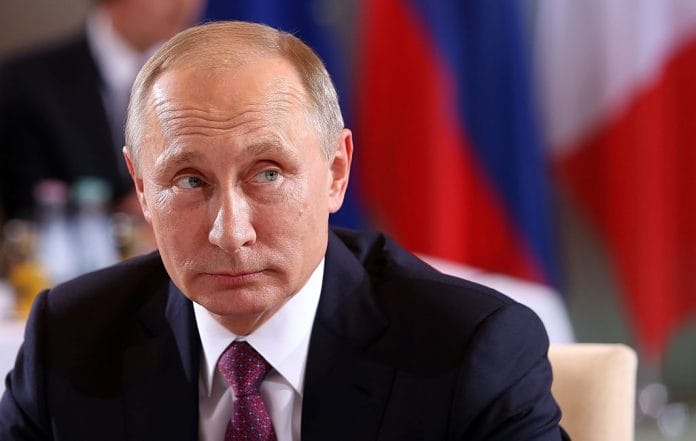In retaliation to 21 countries expelling Russian diplomats, the Russian foreign minister has announced that they too will do the same. Jeremy Corbyn, the British Labour politician known for galvanising the youth in Britain, is being called out as an anti-Semite. American’s new trade strategy — and the threat of a trade war with China — has too many risks and very few pay-offs to justify it.
Tit for tat
“Russia has been on the defensive since the UK government openly blamed Moscow for the poisoning of a former Russian double agent, Sergei Skripal, and his daughter, Yulia Skripal, on British soil on March 4,” writes Angela Dewan in CNN. “Russia had already been engaged in a tit-for-tat with Britain, with both countries expelling 23 diplomats each, and Russia closing some British institutions in the country.”
“Russia has firmly denied responsibility for the poisoning and President Vladimir Putin has dismissed accusations his country was involved as “delirium.””
The Foreign Minister, Sergey Lavrov, called the global expulsions of Russian diplomats as “absolutely unacceptable,” and warned that Russia would retaliate. “He said those countries had been put under “the greatest pressure of the United States and the Great Britain,” Dewan writes.
The move marks a further deterioration in relations between Russia and the Western world.
“Accidental Anti-Semite”
“If you take Jeremy Corbyn at his word, then the leader of Britain’s Labour Party is no anti-Semite. It’s just that, like the Wild West preacher who keeps accidentally wandering into Fannie Porter’s house of ill repute, Corbyn has an odd knack for stumbling into the arms of the Hebraically disinclined,” writes Bret Stephens in the New York Times.
Corbyn is facing criticism after it emerged that he questioned the removal of a London mural in 2012 that looks “like a scene drawn from the Protocols of the Elders of Zion.” Corbyn has said that he wishes he had looked “more closely at the image.”
He was also a member of several Facebook groups about the Rothschild family and theories connecting Israel with the Islamic State. This new scandal has come just a month after his Facebook post for Holocaust Memorial Day hasn’t included any mention of Jews or anti-Semitism. After public outrage, he issued another message mentioning “Jewish brothers and sisters.”
Stephens chronicles plenty of other incidents in which Corbyn has made less-than-diplomatic positions clear, by favouring Hamas and activists at the Arab European League.
“Does all of this make Corbyn an anti-Semite? Not necessarily. He vehemently denies it. You can never know with certainty what’s in a person’s mind or heart unless he tells it to you straight. Motives can be complex. Self-delusion plays its role,” writes Stephens.
“Then again, what does that matter? Corbyn is 68 and has been a Member of Parliament for 35 years. He has risen to the pinnacle of British politics,” Stephens writes. “Corbyn is now urgently seeking meetings with Jewish leaders while saying he is “sincerely sorry for the pain which has been caused.” Note the passive voice. Meanwhile, anti-Semitic incidents in Britain hit a record high last year. Corbyn’s rise may not be the cause of it, but it’s unmistakably a symptom. Countries that care about the safety of Jews don’t elevate leaders who have spent their careers being dismissive of it.”
“The election of Donald Trump has caused waves of justified fear about the unique threat he poses to civil liberties in the free world. Yet Jeremy Corbyn may be the next prime minister of Britain, much to the delight of progressives on both sides of the Atlantic. What happens now will be a test for the global left: If it is willing to let Corbyn off the hook, it can have no honest case against Trump. No claim to moral respect, either.”
A risky strategy
“America’s president claims to view China as a friend. But the friendship is going through a rocky patch, to say the least,” writes The Economist. America’s trade deficit with China is the largest deficit in the history of our world, complained Donald Trump. “And so, after laying out his concerns, he announced plans for some tough love. Litigation against China at the World Trade Organisation (WTO), investment restrictions and tariffs are all on the cards.”
“The announcement early in March of tariffs on steel and aluminium imports to America was chaotic, even prompting the resignation of Gary Cohn, the head of Mr Trump’s National Economic Council.”
“The case will now wend through the WTO’s legal procedures, which could take years. If America wins, China might respond by changing its ways. Its record of complying with rulings against it is no worse than those of America and the European Union. Or the two sides might negotiate a settlement.”
The full list of proposed tariffs will be released on April 6.
“American and Chinese trade negotiators thus have their work cut out. Any deal they reach must allow both sides to claim victory. And since it will be judged a success or failure according to outcomes that have little to do with their agreement, it is bound to be a fragile one.”






